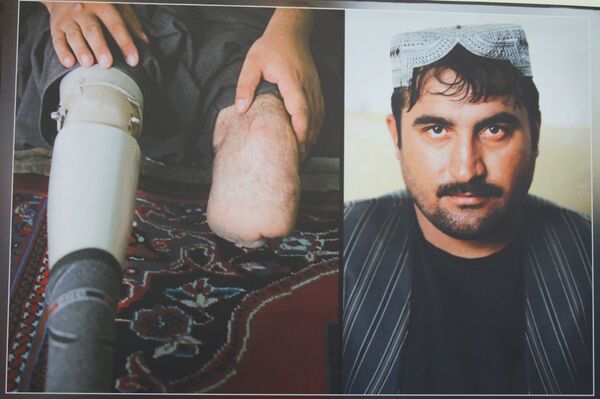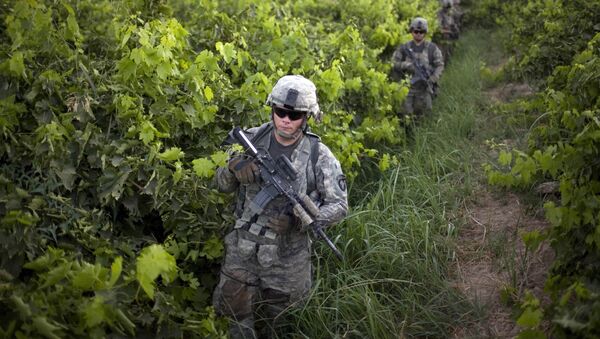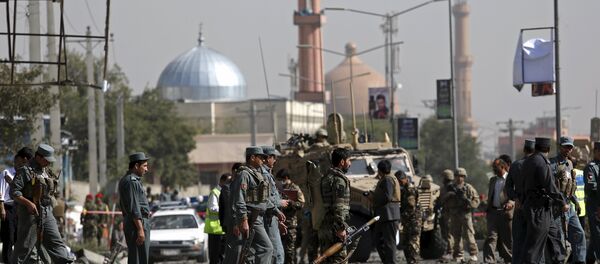Three hours later, he and his bloodstained friends and family members were being carried away from his home and vineyard, which had been instantly turned into a firing range.
Speaking to Sputnik Dari on the fifteenth anniversary of the US intervention, Mahommad confessed that not even in his worst nightmare could he imagine that his beloved vineyard would be turned into a fiery hellscape. But as it turned out, this place, where he earned a living to feed his large family, the man ended up losing both his legs.

"I got off easier than some," the winemaker admitted. And he wasn't joking. As a result of the airstrike, thirteen of his fellow villagers were killed, and another 16 were seriously injured. "Most of the victims were my cousins and brothers – my friends. For about three hours the living and the dead lay mixed together. Then soldiers came and took the bodies and wounded to a hospital in Kandahar."
Six years have gone by since the attack. Mahommad says that his heart is still heavy with sadness – the pain hasn't gone away. "Let's focus on my injuries instead," he remarked. "I stayed in a hospital for about a year, and lost a lot of blood. My family weren't able to take me to a better hospital to get the urgent surgery I needed. We didn't have the money."
"After that, I visited a doctor regularly for another six months. Doctors provided me with moral support, saying that I would get better. Did I? Well, what can I tell you? I continue to take painkillers. My injuries make themselves felt. Whenever the pain strikes me, I make an injection. It's difficult to say that my health is satisfactory."
The memories of that fateful morning remain in Mahommad's memory, he said. "From the start of the attack to my hospitalization I remained conscious; I remember every detail of what happened." Pausing for a moment, the man continued. "I remember how loudly the dead seem to fall to the ground, how people received terrible wounds on their bodies before my eyes."
"But six years have passed," Mahommad added, "and no one in Nagahan ever saw this compensation. I know that they haven't fulfilled any of the obligations they made to us. They played with us and left us to fend for ourselves. After all, the air attack destroyed all our property –our garden, our home, our tools…Unfortunately, I am not physically able to restore our household. Before I was a good worker; now I'm not."
Mahommad was forced to leave his home, or what was left of it, and to move to Kandahar. For a while, he worked as a tailor, and then became a baker. He bakes to sustain himself, his elderly father and his younger brother. But he can only do so at half his former strength, he said, since he is now "only half a man."




